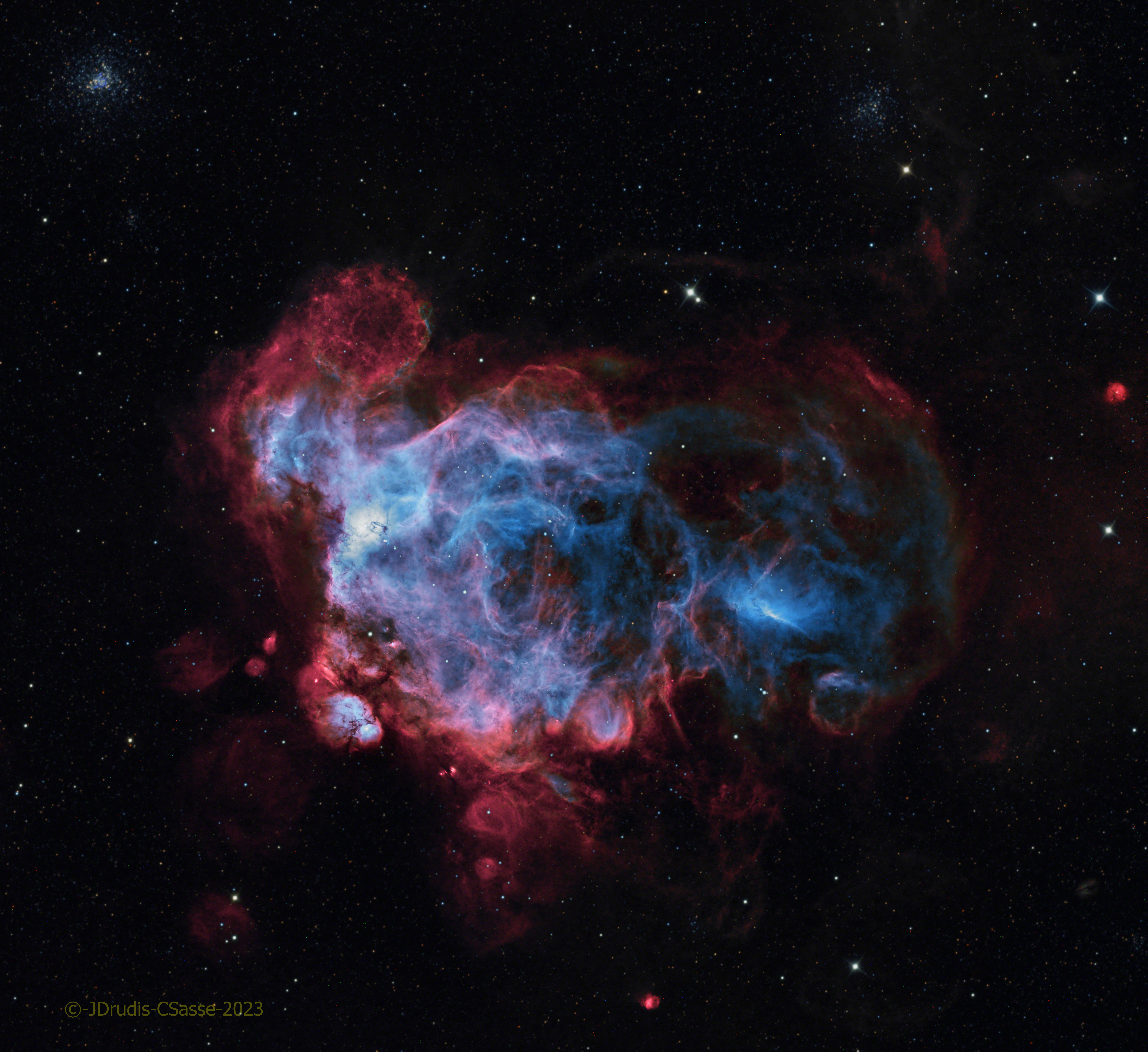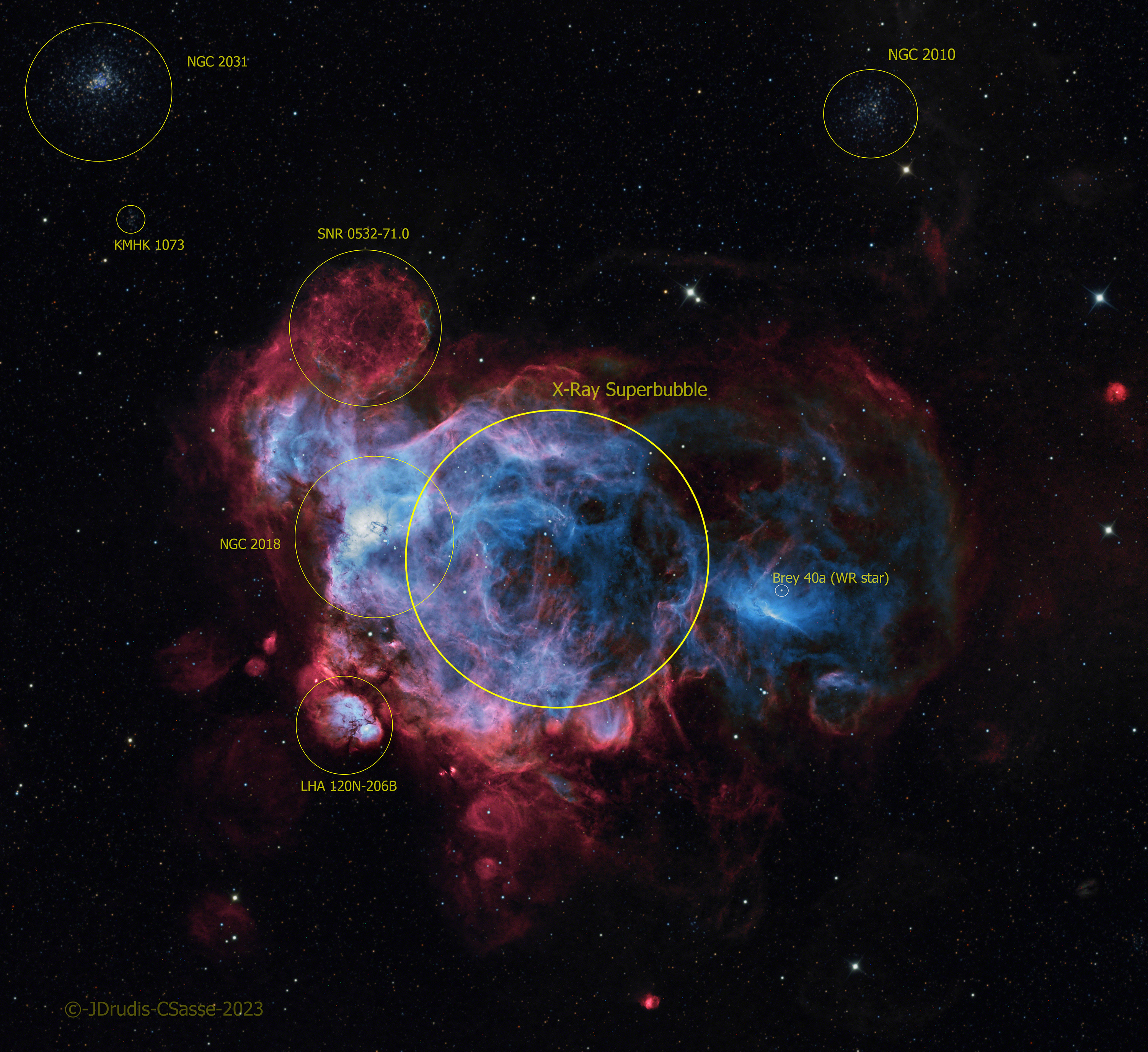Click on the image for a full resolution version
 See this image also on Instagram
See this image also on Instagram
N206 is an interesting nebular complex located in the Large Magellanic Cloud, 170,000 light years away. It is considered a superbubble, where plenty of new stars have been (and are still being) formed. This nebula has already a large number of O and B stars and many supernovae have already exploded and left their smoking guns in the form of remnants. This nebula has been thoroughly studied by Ramachandran et al. who, in 2018, published a series of papers describing N206’s properties. In the annotated image below, it is possible to see the conspicuous SNR on the upper left as well as the X-Ray Superbubble. This nebula also contains a Wolf-Rayet star, Brey-40a and another SNR, NGC 2018, associated with an open cluster. One of its stars, according to A. López-Sánchez, exploded as a supernova leaving small OIII filaments that mark the place of the event. A curiosity in N206 is that it has two HMXBs (High Mass X-ray Binaries). This means that one member of the binary system is a compact star (neutron star or black hole that, then, emits X-Rays) that receives mass from a massive companion, usually an O or B star.
This image has been taken with narrowband filters (Halpha and OIII), as well as short RGB exposures to get the stars with a more natural color.
Additional Information
Object
Name(s): N206
Type: Emission Nebula, SNR, Superbubble
RA: 05h 31m 16s
Dec: -71º 03’ 43”
Constellation: Mensa
Size (arcmin): 14×10 arcmin
Magnitude: ND
Distance: 170,000 ly
Image
Date: 2022-12-31 to 2023-01-12
Location: Obstech, Río Hurtado, Chile
Size (arcmin): 27×25 arcmin
Telescope: 24” f/6.5 Reflector
Camera: QHY 461 (11760x8896pix)
Guiding: off-axis guider
Total exposure: 28h 20m (Ha: 12h; OIII: 13h 20m; RGB: 3h)
Processing: CCDStack, PixInsight (one process) and Photoshop CC 2023

